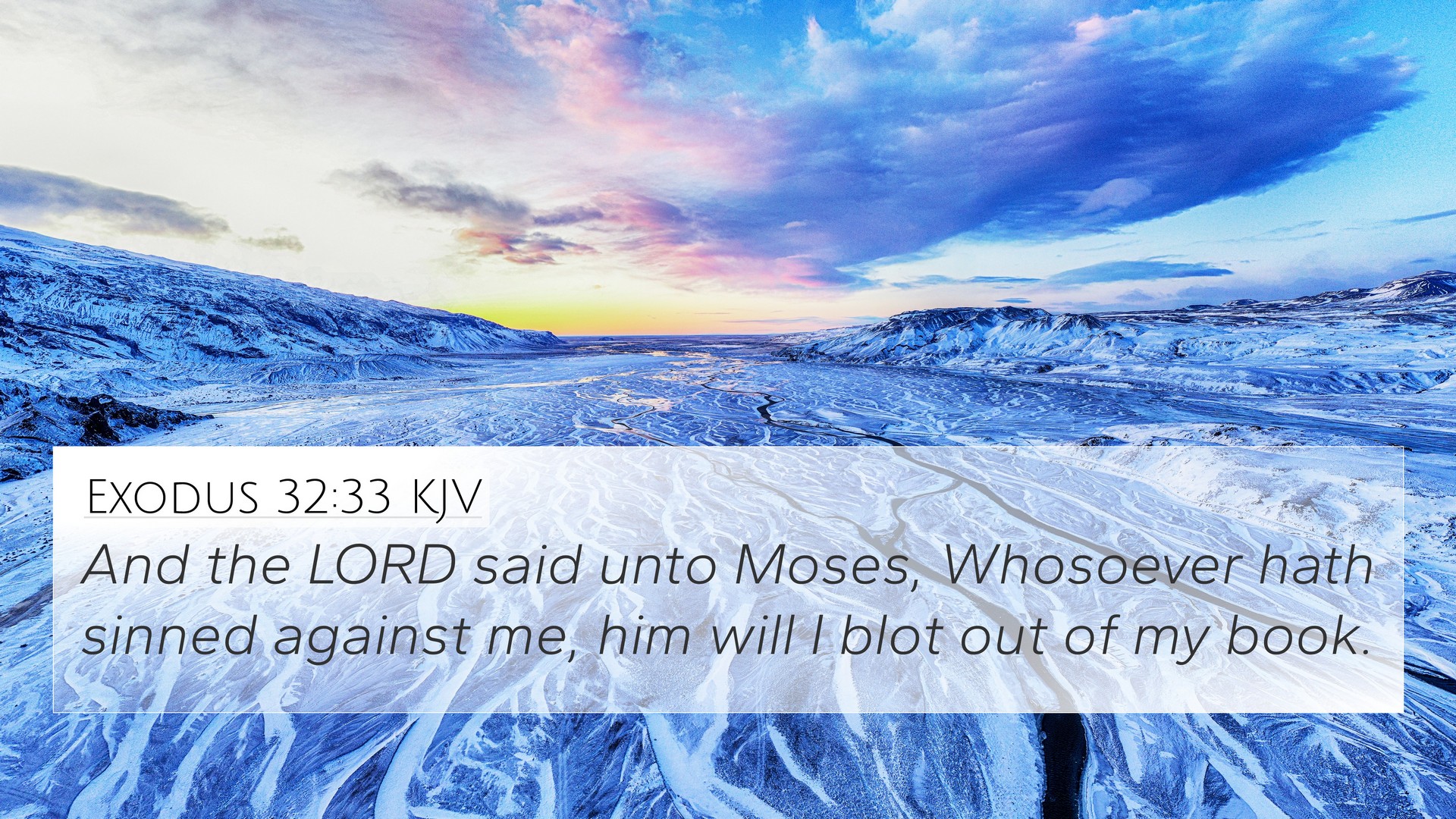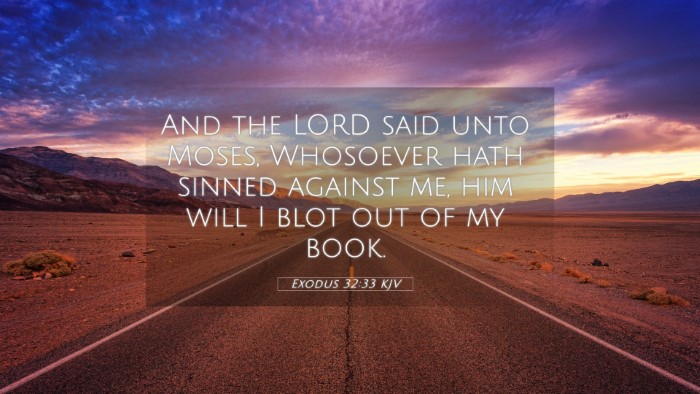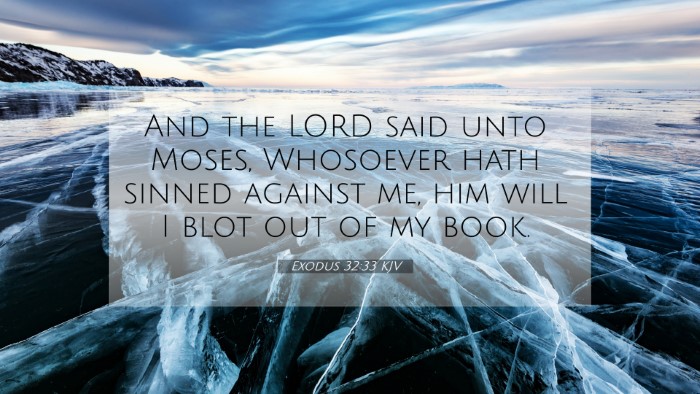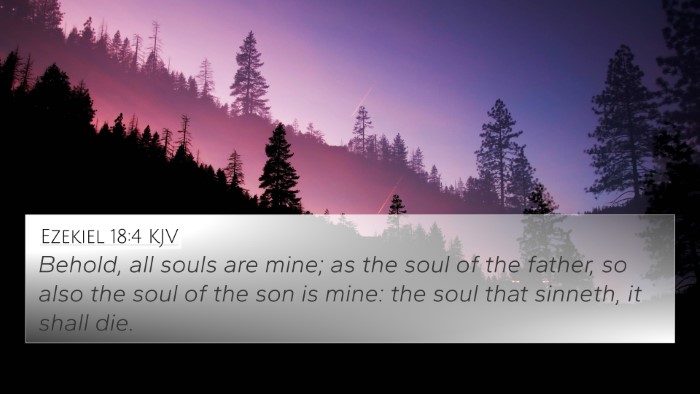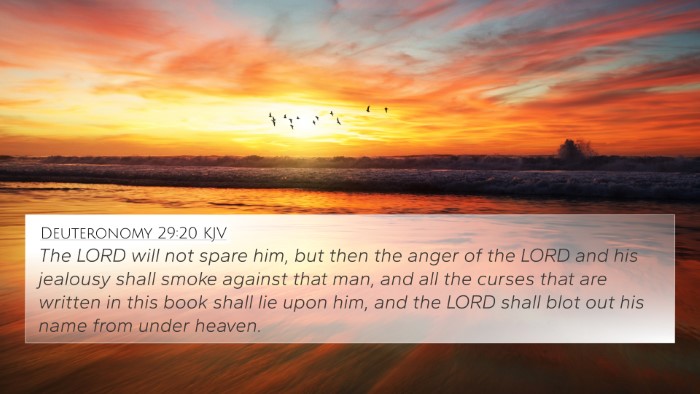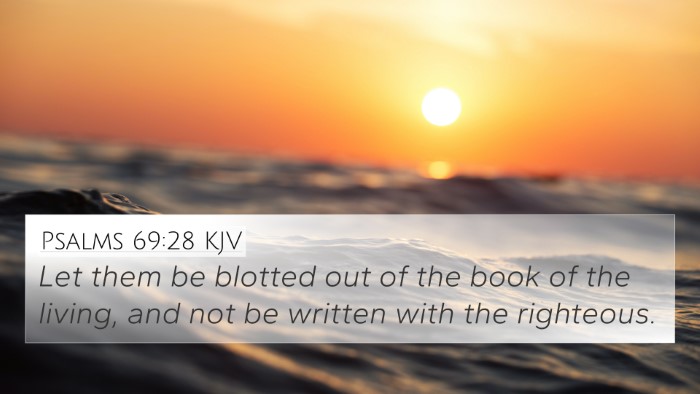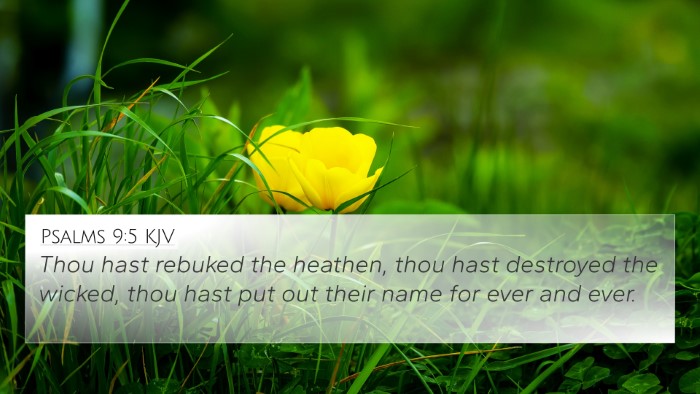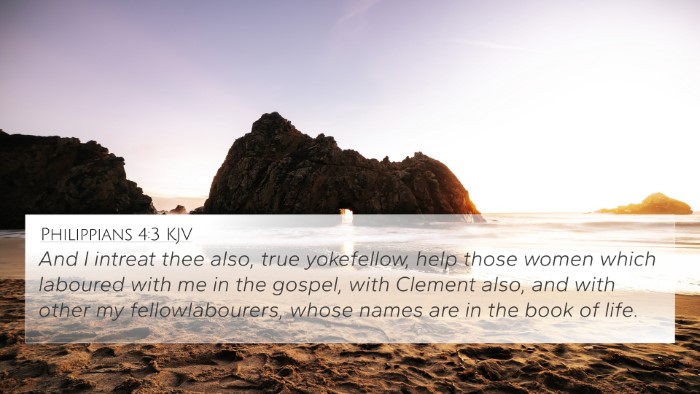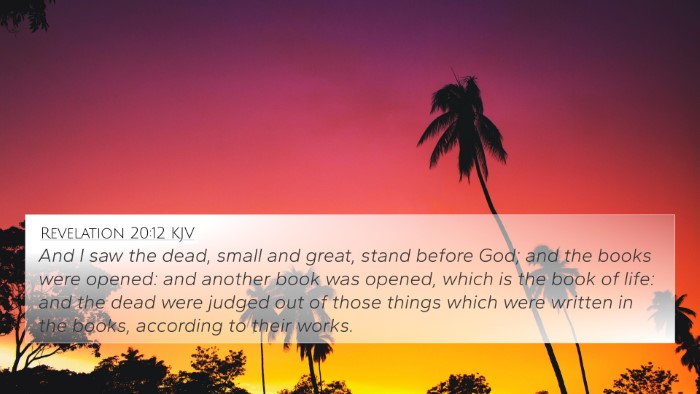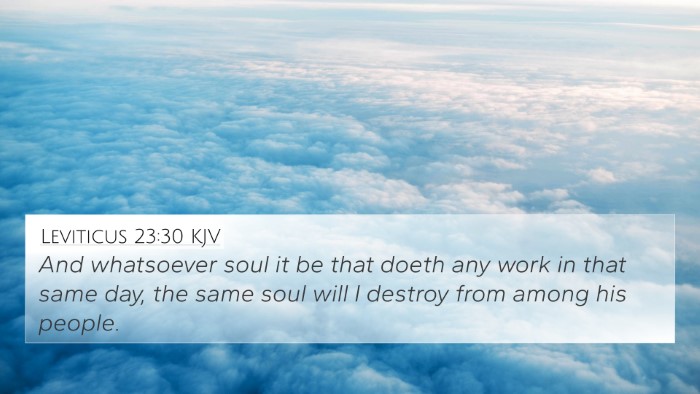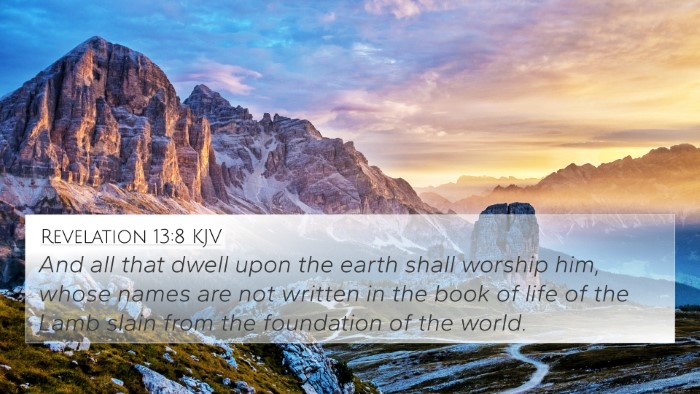Understanding Exodus 32:33
Exodus 32:33 presents a powerful moment in the narrative of the Israelites' sin of idolatry while Moses was on Mount Sinai. The verse reads as follows:
"And the LORD said to Moses, 'Whoever has sinned against me, I will blot out of my book.'"
This brings forth themes of divine justice, mercy, and the seriousness of sin in the context of God’s covenant with His people.
Commentary Insights
Drawing from the insights of public domain commentaries such as those by Matthew Henry, Albert Barnes, and Adam Clarke, we can elaborate on the verse's meaning:
-
Matthew Henry:
Henry emphasizes the gravity of sin and its repercussions. He notes that being blotted out of God's book symbolizes a severing relationship with the divine and a loss of eternal life. The book mentioned is often interpreted as the register of those who have eternal life (Revelation 20:15). The seriousness of sin leads to consequences that can impact one's standing with God.
-
Albert Barnes:
Barnes highlights the distinction between the innocent and the guilty. He points out that this verse reflects God’s justice — those who lead others into sin (like the golden calf incident) face dire consequences. The term "blot out" is significant, indicating a deliberate action of removing names from a record of life, emphasizing that disobedience and rebellion cannot be ignored by a holy God.
-
Adam Clarke:
Clarke delves into the implications of this passage regarding intercession. He describes how Moses had previously interceded for the people, but God's response highlights the ultimate responsibility for sin resting on the individual. Those who have sinned against Him will not find refuge in the collective. God’s personal relationship with individuals is emphasized, calling for recognition of personal accountability in one's faith journey.
Cross-References
Exodus 32:33 serves as a pivotal scripture linking to several other important biblical texts. Consider the following cross-references that enhance the understanding of this passage:
- Revelation 3:5: "The one who conquers will be clothed the same way, in white garments, and I will never erase his name from the book of life, but will confess his name before my Father and before his angels." This emphasizes the permanence of a name in the Book of Life for those who maintain their faith and obedience.
- Psalm 69:28: "Let them be blotted out of the book of the living; let them not be enrolled among the righteous." This reflects a similar idea of exclusion from the community of the righteous due to sin.
- Philippians 4:3: "Yes, I ask you also, true companion, help these women, who have labored side by side with me in the gospel together with Clement and the rest of my fellow workers, whose names are in the book of life." An affirmation that names are recorded when one participates in God's work.
- Luke 10:20: "Nevertheless, do not rejoice in this, that the spirits are subject to you, but rejoice that your names are written in heaven." A testament to the assurance of salvation and the joy of being part of God’s Kingdom.
- Romans 6:23: "For the wages of sin is death, but the free gift of God is eternal life in Christ Jesus our Lord." This scripture contrasts the fate of the guilty with the gift of life through obedience to Christ.
- Ezekiel 18:30: "Therefore I will judge you, O house of Israel, every one of you according to his ways, declares the Lord God. Repent and turn from all your offenses, so sin will not be your downfall." The call to repentance echoes the need for accountability and the freedom that comes from turning back to God.
- Hebrews 10:26-27: "If we go on sinning deliberately after receiving the knowledge of the truth, there no longer remains a sacrifice for sins, but a fearful expectation of judgment, and a fury of fire that will consume the adversaries." This scripture warns against the consequences of willful disobedience.
Thematic Connections
The journey through Exodus 32:33 engages in multiple themes of sin, accountability, and intercession. The following thematic connections can be observed:
-
Divine Justice:
The justice of God signifies that wrongdoing is not overlooked, aligning with the moral order established by the covenant.
-
Mercy and Intercession:
Moses’ role as an intercessor highlights God’s mercy; yet it also illustrates the necessity for personal accountability.
-
Accountability:
Each individual’s relationship with God is unique, and personal sin demands personal repentance.
-
The Book of Life:
Referencing the Book of Life underscores the importance of being 'written' in God's records as a symbol of salvation.
-
Consequences of Idolatry:
In the backdrop of the golden calf, the passage warns against the dangers of turning from God and delves into the ramifications of idolatry.
Tools for Further Study
For those seeking deeper understanding and connections within scripture, various tools for Bible cross-referencing can enhance study efforts:
- Bible Concordance: A tool that lists words and their occurrences, helping to find related verses.
- Cross-reference Bible Study Guides: Material that provides systematic connections between verses and themes.
- Bible Reference Resources: Annotated bibliographies that help locate biblical themes across chapters and books.
- Comprehensive Bible Cross-reference Materials: Text and software resources designed to facilitate deeper biblical study.
Conclusion: Navigating Biblical Texts
Understanding Exodus 32:33 illuminates the serious nature of sin and God's response towards it in the context of His covenant with humanity. Through careful examination and cross-referencing, believers can deepen their understanding of scripture and its interconnections, strengthening their faith and guiding them in their spiritual journeys.
